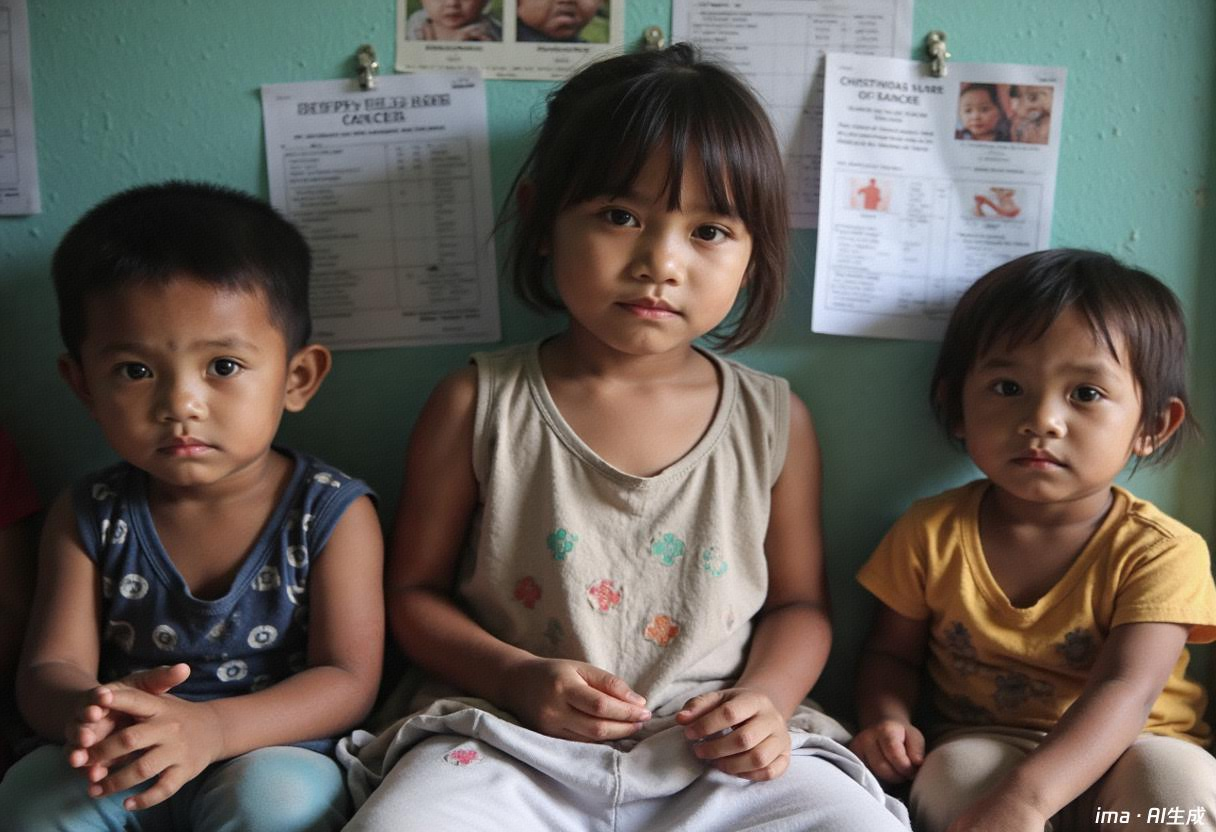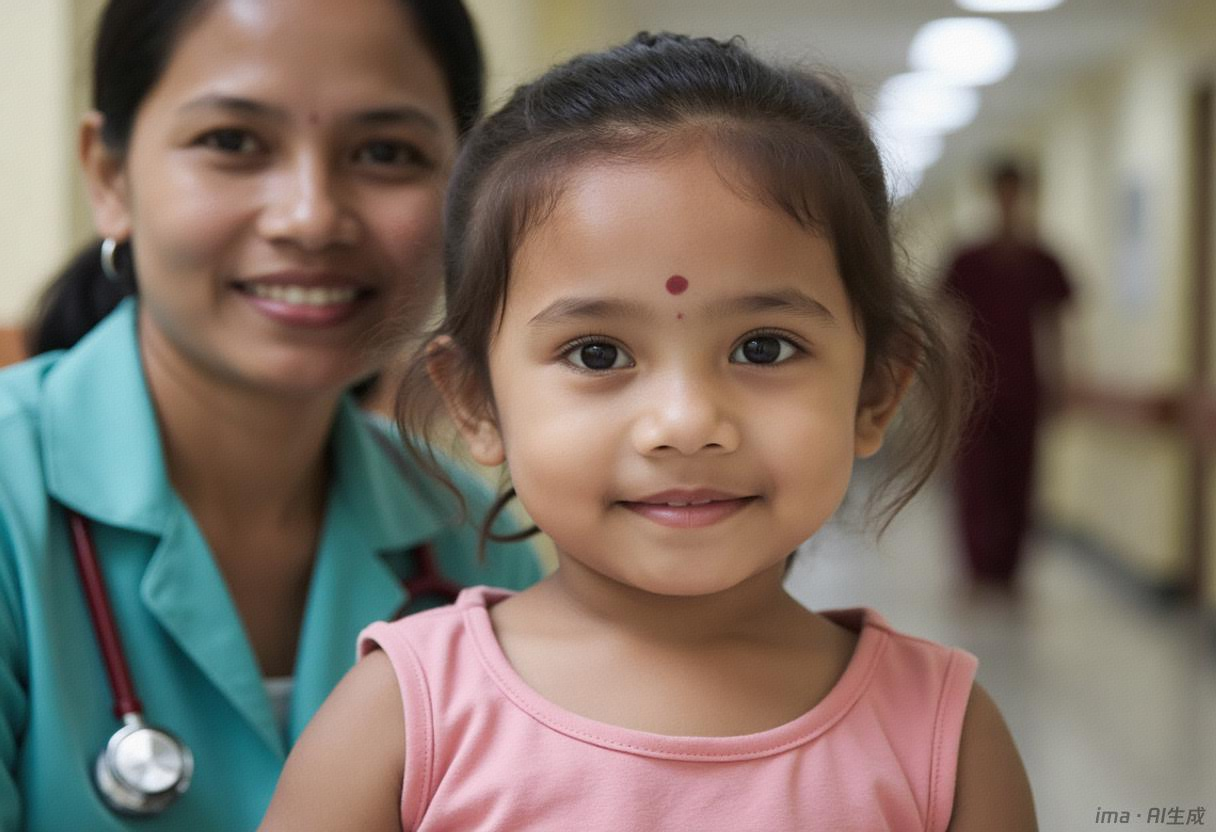Eating Ice Cream During Treatment: Can It Prevent Side Effects?!
Eating Ice Cream During Treatment: Can It Prevent Side Effects?!
Source: Sunflower Children Author: Sunflower Children Editor: Gaozx Date: July 6, 2023
In this issue, we present the written content from a nutrition class by clinical nutritionist Linda Sun from Johns Hopkins Hospital in the U.S., to help parents learn and review relevant knowledge alongside the video.
How to Prevent Oral Mucositis?
1. Cool the Mouth: Suck on Ice
Oral mucositis is generally not caused by the disease itself, but is mostly a side effect of medication or radiation therapy in the head and neck area.
Quick Quiz: Can children eat cold or icy things during treatment?
a. Yes
b. No
The answer is yes. Currently, the most clinically supported and effective method to prevent oral mucositis is to cool the mouth by sucking on ice cubes.
Chemotherapy can cause oral mucositis mainly because the drugs damage the rapidly growing cells in the mouth. Sucking on ice reduces the exposure of these drugs to the mouth, helping to decrease their toxic side effects and prevent oral mucositis. Even if oral mucositis does occur, its severity is likely to be reduced.
However, there are specific ways to suck on ice. Pure ice cubes are just water, and during treatment, children may have a reduced appetite while their nutritional needs remain high. Therefore, in hospitals, we typically freeze nutritional solutions into ice cubes, popsicles, or make ice cream for children to consume. This usually starts five minutes before drug injection and continues for 30 minutes to 2 hours, or throughout the entire chemotherapy drug infusion process.
This year's "Ig Nobel Prize" in Medicine was awarded to Polish scientists for their research revealing that patients receiving chemotherapy can lower the incidence and severity of oral mucositis by eating ice cream.
It’s important to remember that hygiene is crucial when preparing ice cubes. Generally, you should prepare the nutritional solution a day in advance, place it in a separately packaged popsicle mold, and then store it in the freezer. The next day, when the child is undergoing chemotherapy, they can enjoy it. This not only provides essential nutrients but also helps reduce the risk of oral mucositis while improving the child’s mood with the treat, which positively impacts treatment outcomes.
2. Rinse with Honey or Propolis
You can use honey or propolis to rinse the mouth or suck on them before spitting out. However, honey is not recommended for infants. When purchasing, it’s safer to buy packaged honey that has undergone sterilization.
What to Do If Oral Mucositis Occurs?
1. Choose Suitable Foods
Avoid overly acidic, spicy, or salty foods that can further irritate the mouth. Opt for soft foods that require minimal chewing, avoid alcohol, soda, and carbonated drinks, and limit coffee and strong tea. Additionally, using a straw to drink nutritious liquid foods can minimize contact with the mouth, reducing pain.
2. Keep the Mouth Moist
Rinse the mouth 5 to 6 times a day, but avoid mouthwashes containing alcohol; you can use baking soda mouthwash instead.
3. Maintain Oral Hygiene
Use a soft-bristled toothbrush to brush teeth or use a damp cloth to help clean the child’s mouth.
4. Medical Intervention
If the condition is severe and affects the child’s ability to eat, parents must actively communicate with the doctor to use medication to relieve pain and consider nutritional support methods, both enterally and parenterally, to help the child replenish nutrients.
In summary, nausea, vomiting, diarrhea, constipation, and oral mucositis are very common side effects during treatment, mostly triggered by the therapy itself. Therefore, do not blame the child or family members. Focus on dietary and lifestyle interventions, actively communicate with doctors, and use medications and nutritional support promptly to alleviate discomfort.
Q&A
1. Is it normal for a child to gain 20 pounds during leukemia treatment?
Rapid weight gain is also not ideal. You can refer to the nutrition class titled "How to Ensure Growth for Children During Treatment," which addresses weight assessment. Generally, during the initial phase of leukemia treatment, high doses of steroids may be used, leading to increased appetite and rapid weight gain; however, this is often mainly fat, not muscle. We hope to control weight during steroid treatment by limiting high-sugar and high-fat foods like chips, fried chicken, and beverages.
2. Can eating ice pops with ice cubes irritate the stomach and cause diarrhea?
When large amounts of ice water are consumed quickly, if the digestive system is weak, it can indeed irritate the digestive tract and potentially cause diarrhea. However, sucking on ice cubes and eating ice pops allows the ice to melt in the mouth, warming to body temperature before reaching the stomach and intestines.
3. Can pure fruit juice be consumed in large quantities?
No, it is recommended that fruit juice consumption does not exceed 200 milliliters per day for older children and 120 milliliters for younger ones. For older children, it should not exceed 250 milliliters. The recommended amount of fruit is 1 to 2 fist-sized servings a day, which yields very little juice. More vegetables or vegetable juice can be consumed.
4. What should be done if a child keeps drooling after chemotherapy?
This can easily occur because discomfort in the mouth can lead to increased saliva production. Allow them to drool; just ensure proper oral care. If they are continuously drooling without eating anything, encourage them to drink some fluids.
5. Is the overall dietary principle during treatment to be high in protein, high in calories, high in dietary fiber, and low in fat?
Not entirely correct. The general principle is to have a high nutritional density. High calories, high protein, high vitamins, and high minerals are acceptable, but it doesn’t have to be high in dietary fiber. If there is diarrhea, a high-fiber diet is not advisable; it also doesn’t have to be low-fat, as fats are a crucial source of calories. It’s challenging to achieve both low-fat and high-calorie intake, but one can choose quality fats. Between plant and animal fats, opt for plant oils like canola oil and olive oil; animal fats such as lard and beef tallow are solid at room temperature, while nut oils are healthy fats.
6. Can grapefruit be eaten?
Grapefruit can be consumed, but many targeted medications avoid grapefruit, which is different from the Shatian pomelo commonly eaten. Grapefruit, also known as pomelo, is not recommended as it can increase the blood concentration of certain medications, heightening toxic side effects. For safety, it’s best to avoid it. If the child particularly enjoys it, check with the doctor using the medication list during treatment to see if it should be avoided.
7. Is it okay for a child who loves steamed eggs to eat four eggs every morning?
Not recommended. Balanced nutrition is essential, and it’s important to eat a variety of foods to obtain different nutrients. Four eggs are a bit excessive; one to two eggs a day is sufficient.
8. Can children drink chocolate-flavored Abbott Similac formula during treatment?
It depends on the amount consumed. Compared to other formulas, it has a higher fat content. Drinking one cup isn’t a problem, but if consumed in large amounts, the overall dietary fat must be considered. A clinical nutritionist at the hospital can help assess the child’s diet.
9. How much fatty meat can a child who loves it eat daily?
It’s advisable to avoid fatty meats, especially for overweight children. Encourage them to eat lean meats, as fatty meats contain saturated fats that are not beneficial for cardiovascular health. For children who have undergone antitumor treatments, we hope to support cardiovascular health through diet.
10. Is 21st Century Multivitamin acceptable?
It’s essentially a compound vitamin and mineral supplement, and it’s crucial to choose one formulated for children, especially those under 10. However, if a child has just undergone a bone marrow transplant, it’s not advisable to consume it, as it contains iron. Unless the doctor specifies that the child requires iron, iron-containing supplements should be avoided. A compound vitamin and mineral supplement without iron can be purchased instead.
11. Are there any appetite stimulants that work?
There aren’t any specific folk remedies. If anyone wishes to consult traditional Chinese medicine, they should seek a reputable traditional hospital and consult a qualified practitioner for appropriate medication.
Course Instructor: Linda Sun
Former Clinical Nutritionist at Johns Hopkins Hospital
Course Development Assistant: Jessica Zuo
Content Compilation: Yu Xia
Formatting: Yi Meng
Proofreading: Xiu Xiu
Search
Related Articles

Relaxation Therapy & Peace Care
Jul 03, 2025

Rare Childhood Tumour
Jul 03, 2025

Inflammatory Myofibroblastoma
Jul 03, 2025

Langerhans Cell Histiocytosis
Jul 03, 2025

Angeioma
Jul 03, 2025